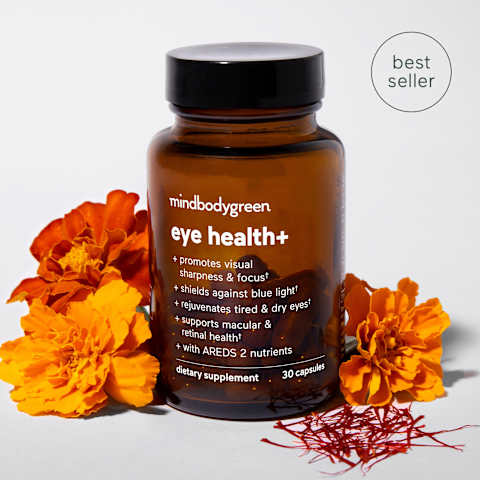Advertisement
Your Eyelashes Should Be This Long For Optimal Eye Health (Yes, Really)


When discussing lash health, much of the conversation focuses on how to keep those tiny wisps of hair fluffy, full, and thriving. After all: Who doesn't want a set of gloriously long, spidery flutters? A quick search on Google, and you can find a plethora of tips, product recommendations, and procedures, to achieve doll-like lashes, plus plenty of makeup tricks to create the illusion of lift and volume.
But wait: Apparently, too-long eyelashes aren't so great for eye health. (Cue the gasps!) Allow board-certified ophthalmologist Diane Hilal-Campo, M.D., founder of twenty/twenty beauty, to explain.
How super-long lashes can lead to dry eyes.
"Your eyelashes are important. They keep dirt and dust out of your eye," says Hilal-Campo. You might not think much about their purpose when swiping on mascara for a doe-eyed look, but let's not forget that lashes are functional, first and foremost. While their main gig may be to block dirt and dust from the eyeballs, research shows they actually keep your eyes hydrated as well.
How so? Well, according to a 2015 study published in the Journal of the Royal Society Interface, eyelashes help divert wind from the surface of the eye so just the right amount of airflow gets through. (Ever find yourself tearing up on a brutally windy day? Imagine feeling that with just a slight breeze. Thank you, lashes!) Of course, other factors can totally influence eye dryness, but without those hairs blocking the wind—or if your lashes become gappy and weak—your eyes might become more susceptible to dryness. And with that dryness comes itching, blurriness, etc.
That said, keeping your lashes full and healthy is crucial—but if you have lashes that are too long, Hilal-Campo says you can easily run into the same issue. Unnaturally long lashes can create a wind tunnel effect that strips the eye of moisture, leading to eye dryness and suboptimal comfort, she notes. Research backs it up: That same 2015 study (confirmed later by a more recent 2019 study) found that the "best" eyelash length is one-third the width of the eye—anything longer than that, and the lashes actually start funneling air and dust particles into the orbs. Essentially, longer lashes aren't always better.
What should you do?
Now, this doesn't mean you should ignore all of your lash length goals and toss your peptide-infused growth serums into the wind. Eyelash health remains top priority here; it's always a good idea to coat those tiny hairs in moisture and care for those flutters.
Hilal-Campo simply suggests taking a closer look at your falsies (if you use them), especially if you're partial to sky-high lash looks. You might want to opt for a shorter length to avoid that wind tunnel effect.
Of course, you should also clean those falsies daily to avoid gunk and grime accumulating in those lash hairs. But you may even want to give those wisps a breather if you are someone who uses lash extensions regularly. Constantly dolloping glue onto your sensitive lash line can lead to irritation and even lash loss—and, remember, you need those lashes to deflect the airflow in the first place!
The takeaway.
While bare, stubbly lashes can lead to eye dryness, extra-long flutters can have the same effect. Everyone's eye shape is different, so the perfect lash length will vary from person to person, but one-third the width of the eye seems to be the current threshold. Anything longer than that (which you can really only achieve by getting lash extensions), and you may face some discomfort down the road. And if you're experiencing eye dryness and can't quite figure out why, you might want to invest in a shorter pair of falsies.
